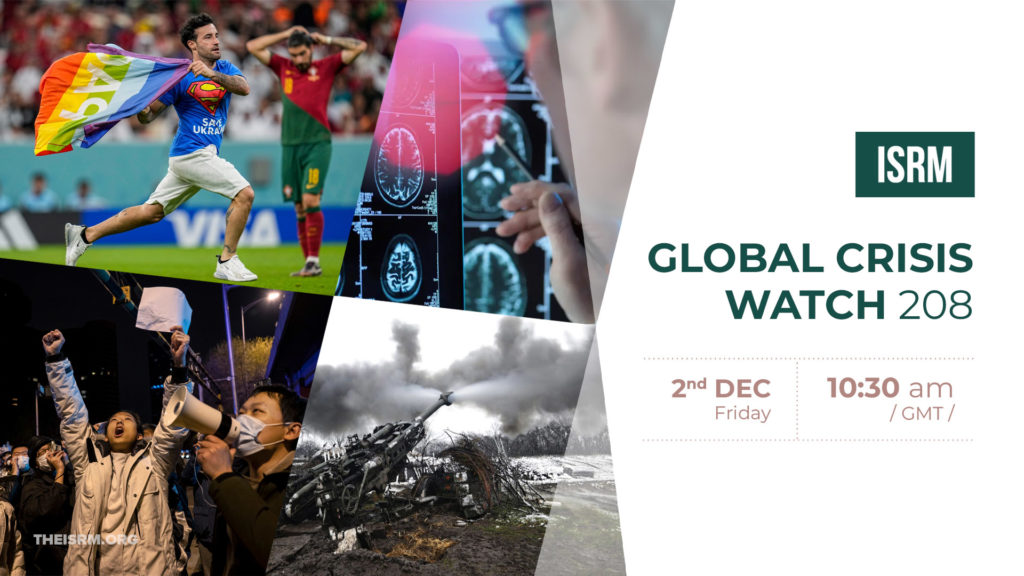And so we reach December 2022. It feels like we are caught in a Dr Who programme, where someone is stealing half the year! I am not sure where the year went, but it has gone a lot faster than expected.
In the news this week, protests in both China and Iran seem to be reaching critical points, where the government are either going to have to engage both with the protesters and with the unspoken feeling behind them, which is that the mass of people are tired of not having their voices heard, and feel that there is a window of opportunity for significant change – or are going to have to revert to previous patterns (Tiananmen Square for China, multiple student protests in Iran), and grow increasingly kinetic and oppressive in their response to the public demonstrations.
In Europe, winter is coming, and for those in Ukraine, it looks as though it is going to be especially hard. Russia has attacked the critical infrastructures that are required to maintain Ukraine as a functioning country, and large parts of the country, including Kyiv, are without power, heating, fuel or water. Ukrainian forces continue to gain control over territory previously held by Russia, but there is no sign of a softening of the refusal of both sides to enter meaning full negotiations.
In Europe, the impact of the weaponisation of gas supplies from Russia have started to take effect, and there are national-level impacts across the region, as well as the warning of rolling blackouts over winter as supply cannot meet demand.
In the World Cup in Qatar, the competition has already delivered excitement and upsets, and overall seems to be turning into successful event. It seems that there has been a bit of a backlash against the continuous stream of negativity against Qatar, particularly in terms of its equality and human rights record. Voices are being heard questioning why this is different from Beijing hosting the 2008 Olympics or Russia the 2014 Winter Olympic Games in Sochi.
In an announcement that might have implications for many of us, it has been announced that there has been a breakthrough in the management of Alzheimer’s disease, the main cause of dementia. A new drug, lecanemab, slows down the rate of decline rather than dismissing it completely, but is being hailed as perhaps the start of the ability to reduce the impact of dementia on millions of families around the world. Anyone who has lived through the pain of seeing a loved one lose their mental faculties, whilst often remaining physically healthy for years and even decades, knows what a significant step tht would be. In a world increasingly dominated by aging populations, this is something that could have an impact on all of us at some stage in our lives.
Join us to discuss these and other subjects, at Global Crisis Watch 208:
- Global Crisis Watch 208
- Friday, 2nd November, 2022
- 10.30 – 11.30 am /GMT/
- Registration >>
